UNDP launches the Gender Equality in Public Administration (GEPA) Report
11th July, 2014
 In New York on 19 June, the UNDP had a live streamed launch of its new report, Gender Equality in Public Administration (GEPA), aimed at addressing head on the issue of gender equality in the public workplace.
In New York on 19 June, the UNDP had a live streamed launch of its new report, Gender Equality in Public Administration (GEPA), aimed at addressing head on the issue of gender equality in the public workplace.
The GEPA report is part of the first phase of what will be a comprehensive and multi-disciplinary project. UNDP drew together available data and knowledge and also carried out case studies in 13 countries. In addition to thirteen country case studies (Bangladesh, Botswana, Burundi, Cambodia, Colombia, Jordan, Kyrgyzstan, Mali, Morocco, Mexico, Romania, Somalia, Uganda), the global report was informed by a desk-based literature review, semi-structured interviews and consultations with United Nations colleagues, government counterparts and external experts.
Although developing country contexts are highlighted in this publication, some examples are also drawn from developed countries where similar challenges are faced or where innovative practices have been promoted. Similarly, while the focus is on public administration, examples and good practices from other sectors are featured when relevant.
Key findings from the GEPA Report:
– Across all regions, women continue to be underrepresented at top levels of public administration.
– In 11 of 13 GEPA case study countries, women hold less than 30% of decision-making positions in public administration. In 7 of the 13 case study countries, women occupy 15% or less of decision- making positions.
– Constitutions, national legislation and policies, including those governing the public administration, are often discriminatory, both overtly and systemically.
– Women continue to hit glass ceilings and glass walls that prevent their equal participation in decision-making positions.
– The organisational cultures of many public administrations (stereotypes, human resource practices, etc.) often disadvantage women and need to be reformed.
– Gender equality issues generally and including in relation to women’s participation and decision- making in public administration are rarely prioritized in post conflict settings.
Source: UNDP Project Brief

